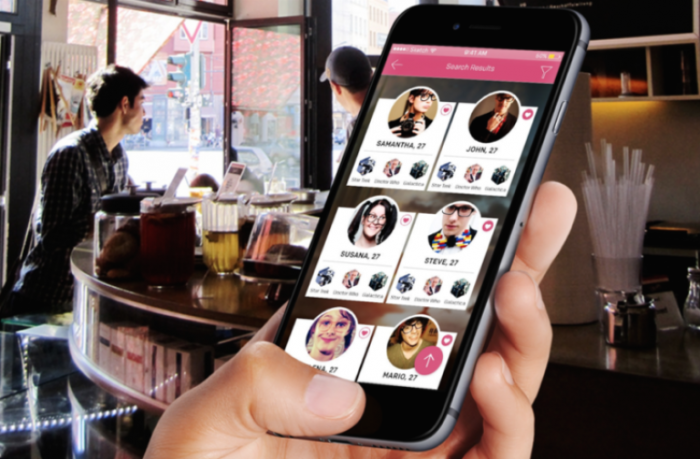We all want connection, but it must be carefully curated and cultivated if we are using dating apps.
For in our culture, the highest insult to a dater are the words, “needy” or “clingy.”
One of the trickiest parts of dating apps is, ironically, the in-app texting, which is designed to help us communicate. Yet, in these avenues, I recall dismissing candidates who were not displaying what I deemed to be the appropriate amount of chill:
“Hello?”
“Are you there? LOL”
“Why did you match with me if you aren’t going to reply?”
“???”
Un. Match.
But before we unmatch and self-validate the importance of not being “needy” or “clingy,” we need to take a moment of compassion and understand what online dating can feel like for some daters.
I’ve been horrified to get those messages. But I’ve also felt exactly the same way as the message sender.
Although I’ve never sent messages that look like that, there is one version of me who feels that way: I’m obsessed with dating, on an app a lot, and dedicating my attention to solving the problems I perceive dating could solve. From this position, it’s unfathomable that someone wouldn’t open Tinder for a day. It’s unfathomable that someone else isn’t responding.
Perspective can be a little skewed, because I might have opened that app 20 (or more) times by the time someone else has opened it once. Dating feels important, urgent. It’s a bit of a frenzy that occupies a chunk of my time, even as I’m juggling other priorities and responsibilities.
From this vantage point, we can lose perspective that other people might not be placing the same urgency or sense of importance upon it. We don’t get why someone has matched with us and isn’t bothering to respond.
Sometimes, it feels personal.
And asking direct questions feels like it might be helpful: maybe we’ll be able to demystify why someone else is matching with us and then failing to follow through.
On the other hand, I’ve also been a dater where an app is on my phone but I don’t really care. In these situations, I’m equally busy; I have the same number of life obligations and a sense of esteem and importance. In that scenario, dating just isn’t that urgent or important in my brain. My notifications are turned off, and sometimes, I forget the app is even there—for a week and often longer.
From this perspective, the people who urgently message me are met with thoughts like:
“Chill out bro, I have a job.”
“Calm down—what do you expect from me? I have other priorities and I’ve never even met you. This is so inappropriate.”
“One question mark is always enough, fella.”
(The last one may be valid).
From this vantage point, the investment in online dating platforms feels more “rational” to me, and I admit that I can feel smug in my busyness with other things. I’m culturally validated in my removal. In this position of not really engaging, I wordlessly unmatch.
And I forget that I, too, am them.
Yes, I have been both of these people.
While the avoidant, dismissive me says that I’m justified in my busyness, there is no difference in busyness in my life. The difference is how I am managing my emotions.
When I’m in an anxious mode: I am anxiously turning to dating sites for emotional soothing or validation. Dating creates a sense of hope for the future. Dating has an underlying sense of over-importance because I don’t want to feel my feelings.
Conversely, when I’m dismissive: I am on an app that I barely check. I’m failing to respond to conversations from well-meaning men who are looking for connection. I’m choosing to generate new matches instead of connecting with the ones I have. And I’m procrastinating until someone else is triggered, then dismissing them because they obviously aren’t a match.
When I’m in a more avoidant zone, I’m annoyed by the more anxious, enthusiastic, and active daters. I see them as desperate, needy, or clingy, and disgusted by their responses.
When I’m in a more anxious zone, I’m irritated by the avoidant type daters. I see them as aloof, distant, and rude. I feel rejected or disrespected. And that increased anxiety generates an increased sense of need to engage on the app.
And so, many of us dislike the experience or the apps—because nobody has ever taught us how to communicate or how to manage the flurry of emotions that arise while on these dating sites.
Unmatching doesn’t actually help those of us who want other people to chill out. And the “why would you match if you aren’t going to respond????” messages don’t help those who are anxious—they feed the issue.
Here’s what we can do instead:
1. Before we go onto a dating site: ask ourselves why we are activating our profile.
“Just to see what’s out there” usually meant that I personally was about to engage in some avoidant behavior.
Conversely, “because I want (insert reason)“ often meant I was going to get obsessed with Tinder-ing as a solution to the underlying problem, and be the proverbial clinger.
If we are using apps to validate our worth or to soothe painful emotions around being single, we may be better off to deal with the emotions before going on the apps.
Trying to approach the apps from a place of understanding why we are on them doesn’t mean we need to be perfect before installing. However, it does help us understand the lens from which we are approaching, and to assess our triggers and responses in order to modify, learn, and grow from the experiences.
2. Recognize where someone else is coming from.
We don’t need to stay open to every match or possibility. But having unkind, or even untrue biases about people we don’t even know is a habit we can start to break.
Recognize if we are engaging in, criticising, or complaining about how “everyone else” behaves on the apps. Focus instead on what our biases and judgements are, and how we can change our response or reaction to those.
How can we remain open to the perspectives of compassion and kindness in recognizing someone else’s emotional vulnerability and soft spots on the apps?
Can we practice responding with kindness, even if we see and acknowledge red flags? Can we be more open to behaving with compassion instead of reacting?
3. Check our own narratives around busyness and neediness.
We tend to hold busyness to a higher standard and neediness to a lower one. Is this true? Are we looking for distant partners? Are we seeking someone who is not available—and why? Are we overly disgusted by another who is displaying interest and eagerness—and why?
Have we been that way ourselves?
Conversely, are we being clingy? Are we using dating to solve emotional problems? Are we using dating to fix things in our life that we refuse to fix for ourselves (or don’t know how)? Are we looking to outsource responsibility?
Do we see daring and partnership as a panacea?
4. What emotional skills can we build to be more secure and neutral in dating environments?
We don’t need to be perfectly emotionally balanced to date, but skewing toward either anxious or avoidant from the outset means we are almost sure to pick a partner who swings the other way.
Can we identify skills that would help us navigate rejection, the need for validation, or attachment? How can we fill in the blanks for ourselves in order to have more capacity for healthy relationships? If we don’t know, can we assess specific behaviors in ourselves that don’t leave us feeling great?
5. Use dating to practice compassion and understanding.
Before we unmatch, take a breath, and ask ourselves:
“Have I been this person?”
“How am I approaching dating?”
“Why am I triggered?”
“Do I understand where this person is coming from?”
Approaching app communication from a place of compassion and curiosity can teach us a lot about ourselves as daters and future partners.


 Share on bsky
Share on bsky





Read 6 comments and reply